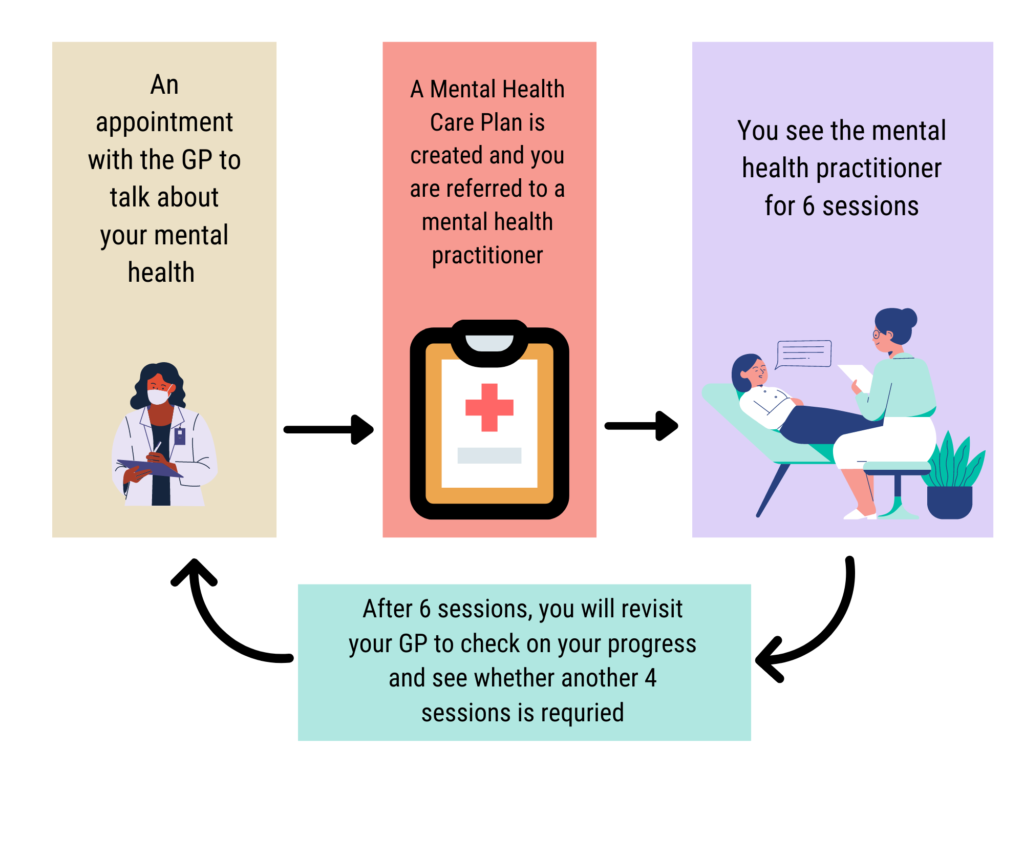We understand that living with knee osteoarthritis has its challenges, and it can cause pain, frustration, stress and feeling of helplessness. Fortunately, there are government services to help you with what you need. This page was created to inform you about a particular service called the Mental Health Care Plan in the hope that it can aid you in the management of your knee osteoarthritis and the effects it might have on your mental health.
The physical symptoms of knee osteoarthritis can undoubtfully impact you mentally. The pain, frustration and limitation on your life because of this condition can create high stress level, poor sleep, anxiety and depression. These feelings and emotions can have an impact on heightening the pain response in your body; and as a consequence, you may feel more pain than your body normally would in their absence.
Mental Health Care Plan (or Mental Health Treatment Plan) is an Australian government initiative that can help individuals reach out for the assistance they need.
As stated above, Mental Health Care Plan is a government service. It is a support plan that can be created with the assistance of your GP to access additional services from trained practitioners to help you.
Some of the practitioners that can help you include

They all have different skills in supporting your mental health. Your GP will help you discover which clinician is the most appropriate for you and your situation.
In the context of knee osteoarthritis, these clinicians can help by providing you strategies to cope with difficult situations, work through challenges and some spiraling thoughts, and help you understand and live with your condition from an emotional perspective.
As the perception of knee pain is correlated to high stress levels, poor sleep, anxiety and depression, these clinicians may be able to help you navigate through some beliefs about your knee pain, provide you with mental coping strategies, in the hope that your physical symptoms may also be lessened.
For more information about the Mental Health Care Plan, click here.
The Mental Health Care Plan allows an individual to claim up to 10 individual sessions and 10 group sessions each calendar year (1st of January to 31st of December) with a Medicare registered mental health professional. In the case of individual sessions, your GP will initially provide you with 6 sessions. After these 6 sessions you will need to revisit your GP to talk about your progress and discuss whether 4 more sessions would be of benefit to you.
After a Mental Health Care Plan is created and a referral has been sent to a mental health practitioner, you might see any of the practitioners listed above.
Below is a simplified version of the process discussed above.

Similar to the Chronic Disease Management Plan, the Mental Health Care Plan is under the Medicare Benefit Scheme. The sessions with the mental health clinician is subsidised by Medicare. The Mental Health Care Plan only covers a certain amount per session. If the practitioner you are seeing charges more than what is covered, you may have to pay a “gap fee”.
However, some psychologists offer reduced prices for concession card holders.
Some GPs may recommend you to see a particular practice, but you may also contact any practice of your choosing to find out their prices before going.
A Mental Health Care Plan can only be started with your GP.
To do this you will need to:
- Make an appointment with your GP. When making the appointment, let them know that it is to set up a Mental Health Care Plan as the session will need more time than a regular consult. If you are not comfortable with letting them know this, tell them that you will need a longer or a double session.
- Bring your Medicare card and ID. If you are a new patient, they will need this information to setup a Mental Health Care Plan
- Discuss with your GP about your symptoms. Letting your GP know about your current mental state will help them decide whether the Mental Health Care Plan is what is most suitable for you and your situation at that point in time.
- See a mental health practitioner. If you and your GP decides that the Mental Health Care Plan is what is most suitable for you and your situation, then your GP may suggest some practitioners he may know. Alternatively, you can find one yourself. However, it is important to know the cost, and how much of the fee will be covered by this plan to avoid and surprising bill.
Resources
Next – Public hospital services
